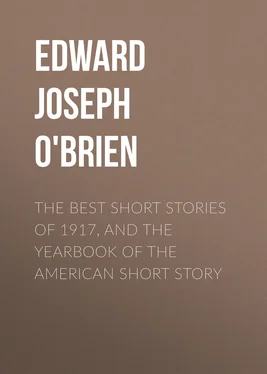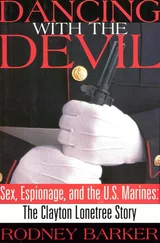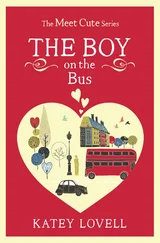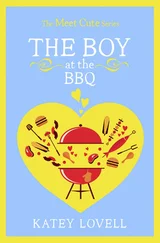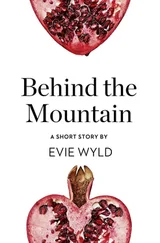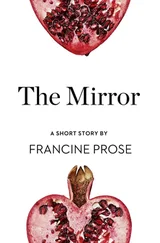Edward O'Brien - The Best Short Stories of 1917, and the Yearbook of the American Short Story
Здесь есть возможность читать онлайн «Edward O'Brien - The Best Short Stories of 1917, and the Yearbook of the American Short Story» — ознакомительный отрывок электронной книги совершенно бесплатно, а после прочтения отрывка купить полную версию. В некоторых случаях можно слушать аудио, скачать через торрент в формате fb2 и присутствует краткое содержание. Издательство: Иностранный паблик, Жанр: foreign_prose, literature_20, foreign_antique, на английском языке. Описание произведения, (предисловие) а так же отзывы посетителей доступны на портале библиотеки ЛибКат.
- Название:The Best Short Stories of 1917, and the Yearbook of the American Short Story
- Автор:
- Издательство:Иностранный паблик
- Жанр:
- Год:неизвестен
- ISBN:нет данных
- Рейтинг книги:3 / 5. Голосов: 1
-
Избранное:Добавить в избранное
- Отзывы:
-
Ваша оценка:
- 60
- 1
- 2
- 3
- 4
- 5
The Best Short Stories of 1917, and the Yearbook of the American Short Story: краткое содержание, описание и аннотация
Предлагаем к чтению аннотацию, описание, краткое содержание или предисловие (зависит от того, что написал сам автор книги «The Best Short Stories of 1917, and the Yearbook of the American Short Story»). Если вы не нашли необходимую информацию о книге — напишите в комментариях, мы постараемся отыскать её.
The Best Short Stories of 1917, and the Yearbook of the American Short Story — читать онлайн ознакомительный отрывок
Ниже представлен текст книги, разбитый по страницам. Система сохранения места последней прочитанной страницы, позволяет с удобством читать онлайн бесплатно книгу «The Best Short Stories of 1917, and the Yearbook of the American Short Story», без необходимости каждый раз заново искать на чём Вы остановились. Поставьте закладку, и сможете в любой момент перейти на страницу, на которой закончили чтение.
Интервал:
Закладка:
"There was nothing to be heard but the gurgling of the river outside and the rather noisy breathing we three made as we drank; and then—very clearly, just as if we'd been sitting in an English drawing-room—in the silence a voice said: 'By Jove, that's the first decent cup of tea I've had in ten years!' Yes, just that! 'By Jove, that's the first decent cup of tea I've had in ten years!' I looked at the buck, but he hadn't moved, and then I looked at the squaw, and she was still squatting and sipping her tea, and then I said, very quietly, for I knew my nerves were still ragged, 'Did any one speak?' and the buck turned slowly and looked me up and down, and I saw the nose I was talking about—the nose like a Norman king's. I was rattled, I admit; I forgot my manners. 'You're English!' I gasped out; and the buck said very sweetly: 'That's none of your damned business.'"
Burnaby paused and looked about the circle of attentive faces. "That's all. But it's enough, isn't it? To come out of nothing, going nowheres, and run into a dirty Indian who says: 'By Jove, that's the first decent cup of tea I've had in ten years!' And then along comes this Terhune and says that he knows the man."
Mrs. Malcolm raised her chin from the hand that had been supporting it. "I don't blame you," she said, "for being late."
"And this man," interrupted Sir John's sonorous voice, "this squaw-man, did he tell you anything about himself?"
Burnaby shook his head. "Not likely," he answered. "I tried to draw him out, but he wasn't drawable. Finally he said: 'If you'll shut your damned mouth I'll give you two dirty blankets to sleep on. If you won't, I'll kick you out of here.' The next morning I pulled out, leaving him crouched over the little teepee fire nursing his knees. But I hadn't gone twenty yards when he came to the flap and called out after me: 'I say!' I turned about sullenly. His dirty face had a queer, cracked smile on it. 'Look here! Do you—where did you get that tea from, anyway? I—there's a lot of skins I've got; I don't suppose you'd care to trade, would you?' I took the tea out of the air-tight box and put it on the ground. Then I set off down river. Henderson, the factor at Lower Post, told me a little about him: his name—it wasn't assumed, it seems; and that he'd been in the country about fifteen years, going from bad to worse. He was certainly at 'worse' when I saw him." Burnaby paused and stared across the table again with his curious, far-away look. "Beastly, isn't it?" he said, as if to himself. "Cold up there now, too! The snow must be deep." He came back to the present. "And I suppose, you know," he said, smiling deprecatingly at Mrs. Selden, "he's just as fond of flowers and lights and things as we are."
Mrs. Selden shivered.
"Fonder!" said Sir John. "Probably fonder. That sort is. It's the poets of the world who can't write poetry who go to smash that way. They ought to take a term at business, and"—he reflected—"the business men, of course, at poetry." He regarded Burnaby with his inscrutable eyes, in the depths of which danced little flecks of light.
"What did you say this man's name was?" asked Lady Masters, in her soft voice. She had an extraordinary way of advancing, with a timid rush, as it were, into the foreground, and then receding again, melting back into the shadows. She rarely ever spoke without a sensation of astonishment making itself felt. "She is like a mist," thought Mrs. Malcolm.
"Bewsher," said Burnaby—"Geoffrey Boisselier Bewsher. Quite a name, isn't it? He was in the cavalry. His family are rather swells in an old-fashioned way. He is the fifth son—or seventh, or whatever it is—of a baronet and, Terhune says, was very much in evidence about London twenty-odd years ago. Terhune used to see him in clubs, and every now and then dining out. Although he himself, of course, was a much younger man. Very handsome he was, too, Terhune said, and a favorite. And then one day he just disappeared—got out—no one knows exactly why. Terhune doesn't. Lost his money, or a woman, or something like that. The usual thing, I suppose. I—You didn't hurt yourself, did you?"…
He had paused abruptly and was looking across the table; for there had been a little tinkle and a crash of breaking glass, and now a pool of champagne was forming beside Lady Masters's plate, and finding its way in a thin thread of gold along the cloth. There was a moment's silence, and then she advanced again out of the shadows with her curious soft rush. "How clumsy I am!" she murmured. "My arm—My bracelet! I—I'm so sorry!" She looked swiftly about her, and then at Burnaby. "Oh, no! I'm not cut, thanks!" Her eyes held a pained embarrassment. He caught the look, and her eyelids flickered and fell before his gaze, and then, as the footman repaired the damage, she sank back once more into the half-light beyond the radiance of the candles. "How shy she is!" thought Burnaby. "So many of these English women are. She's an important woman in her own right, too." He studied her furtively.
Into the soft silence came Sir John's carefully modulated voice. "Barbara and I," he explained, "will feel this very much. We both knew Bewsher." His eyes became somber. "This is very distressing," he said abruptly.
"By Jove!" ejaculated Burnaby, and raised his head like an alert hound.
"How odd it all is!" said Mrs. Malcolm. But she was wondering why men are so queer with their wives—resent so much the slightest social clumsiness on their part, while in other women—provided the offense is not too great—it merely amuses them. Even the guarded manners of Sir John had been disturbed. For a moment he had been very angry with the shadow that bore his name; one could tell by the swift glance he had cast in her direction. After all, upsetting a glass of champagne was a very natural sequel to a story such as Burnaby had told, a story about a former acquaintance—perhaps friend.
Sir John thoughtfully helped himself to a spoonful of his dessert before he looked up; when he did so he laid down his spoon and sat back in his chair with the manner of a man who has made a sudden decision. "No," he said, and an unexpected little smile hovered about his lips, "it isn't so odd. Bewsher was rather a figure of a man twenty years ago. Shall I tell you his history?"
To Mrs. Malcolm, watching with alert, humorous eyes, there came a curious impression, faint but distinct, like wind touching her hair; as if, that is, a door into the room had opened and shut. She leaned forward, supporting her chin in her hand.
"Of course," she said.
Sir John twisted between his fingers the stem of his champagne-glass and studied thoughtfully the motes of at the heart of the amber wine. "You see," he began thoughtfully, "it's such a difficult story to tell—difficult because it took twenty-five—and, now that Mr. Burnaby has furnished the sequel, forty-five years—to live; and difficult because it is largely a matter of psychology. I can only give you the high lights, as it were. You must fill in the rest for yourselves. You must imagine, that is, Bewsher and this other fellow—this Morton. I can't give you his real name—it is too important; you would know it. No, it isn't obviously dramatic. And yet—" his voice suddenly became vibrant—"such things compose, as a matter of fact, the real drama of the world. It—" he looked about the table swiftly and leaned forward, and then, as if interrupting himself, "but what was obviously dramatic," he said—and the little dancing sparks in the depths of his eyes were peculiarly noticeable—"was the way I, of all people, heard it. Yes. You see, I heard it at a dinner party like this, in London; and Morton—the man himself—told the story." He paused, and with half-closed eyes studied the effect of his announcement.
"You mean—?" asked Burnaby.
"Exactly." Sir John spoke with a certain cool eagerness. "He sat up before all those people and told the inner secrets of his life; and of them all I was the only one who suspected the truth. Of course, he was comparatively safe, none of them knew him well except myself, but think of it! The bravado—the audacity! Rather magnificent, wasn't it?" He sank back once more in his chair.
Читать дальшеИнтервал:
Закладка:
Похожие книги на «The Best Short Stories of 1917, and the Yearbook of the American Short Story»
Представляем Вашему вниманию похожие книги на «The Best Short Stories of 1917, and the Yearbook of the American Short Story» списком для выбора. Мы отобрали схожую по названию и смыслу литературу в надежде предоставить читателям больше вариантов отыскать новые, интересные, ещё непрочитанные произведения.
Обсуждение, отзывы о книге «The Best Short Stories of 1917, and the Yearbook of the American Short Story» и просто собственные мнения читателей. Оставьте ваши комментарии, напишите, что Вы думаете о произведении, его смысле или главных героях. Укажите что конкретно понравилось, а что нет, и почему Вы так считаете.
